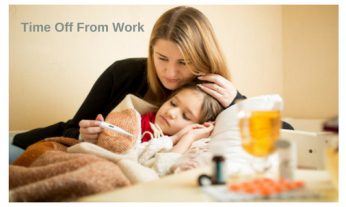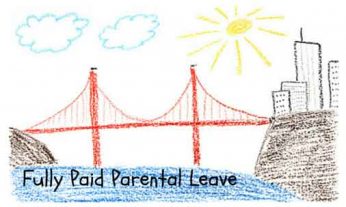 Worried about your job and balancing family care? Can you be fired for calling in sick at the last minute because your child is ill? Let’s say you were just on your way out the door when your little one experienced a disturbing flu symptom. You can’t drop your child off at daycare under those circumstances, so you have no choice but to stay home to tend to him or her yourself. Your employer is understandably not thrilled; but can you actually lose your job?
Worried about your job and balancing family care? Can you be fired for calling in sick at the last minute because your child is ill? Let’s say you were just on your way out the door when your little one experienced a disturbing flu symptom. You can’t drop your child off at daycare under those circumstances, so you have no choice but to stay home to tend to him or her yourself. Your employer is understandably not thrilled; but can you actually lose your job?
Caring for Sick Family Members
Many Americans have dual roles of both breadwinner and caregiver. Sometimes juggling these responsibilities gets tricky.
- 69% of caregivers report having to rearrange their work schedules at times;
- Female caregivers are almost three times more likely than their male counterparts to take less demanding jobs in order to provide care;
- 34% of caregivers wind up leaving a job due to inflexible work schedules.
SB 579
Under California law, employers who employ at least 25 employees and who provide any sick leave to employees must allow employees to use at least one-half of their time to care for sick family members, including children, parents, spouses and domestic partners, as well as the in-laws of the same. Even grandparents and grandchildren qualify for care under SB 579. Employees cannot be threatened with demotions, suspensions, or firing based on the use of this leave.
Beyond this protected sick leave, the law may provide limits on an employers’ ability to require doctors’ notes for absences. Such a requirement may appear to be discriminatory or a form of retaliation against employees who use Protected Sick Leave.
Furthermore, the use of Protected Sick Leave should not be counted against employees in performance evaluations or when making determinations as to excessive absenteeism.
Additional Family Care Protections
SB 579 expands protections for employees who wish to take time off for child-related activities for children in grades k-12 or who are being cared for with a licensed care provider. This means employees may take time off of work to find and enroll a child in school or licensed day-care. Moreover, if a parent is called due to a child’s behavior or discipline issues, time off must be allowed.
Who Qualifies as a Family Care Parent?
Parents are defined as biological parents, legal guardians, foster parents, stepparents, grandparents, and in loco parentis (one who is standing in and acting in the parenting role). [Read more…]


